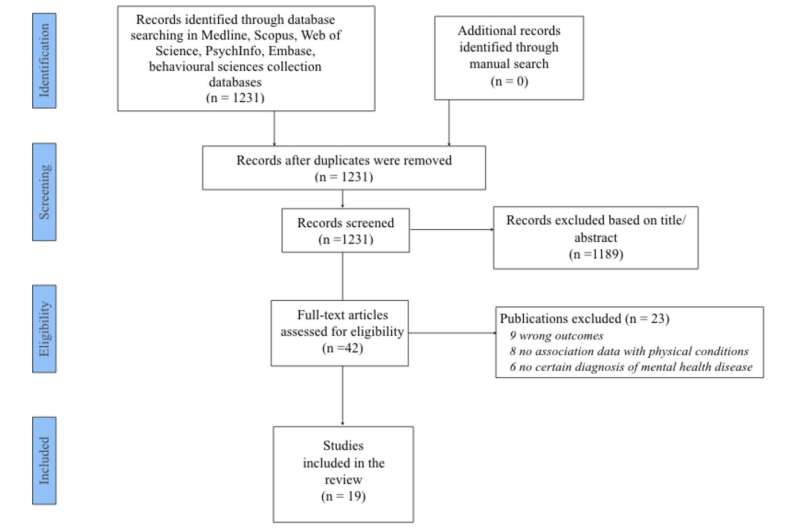This article has been reviewed according to Science X's editorial process and policies. Editors have highlighted the following attributes while ensuring the content's credibility:
fact-checked
peer-reviewed publication
trusted source
proofread
Extensive analysis shows link between mental and physical health

New research, led by Anglia Ruskin University (ARU) in collaboration with the University of Cambridge's Biomedical Research Centre, involved an extensive analysis of 19 different studies, encompassing data from 194,123 psychiatric patients across the world, with a comparison to 7,660,590 individuals in control groups.
Multimorbidity is when a person is affected by any combination of chronic disease with at least one other physical health condition, and the researchers found the psychiatric patients were 1.84 times more likely to report multimorbidity than the control group.
The study found that people with severe mental health issues also report physical conditions including metabolic diseases, hypertension, epilepsy, respiratory, vascular, kidney, and gastrointestinal diseases, as well as cancer.
As of 2019, nearly one billion people were living with a mental disorder, making it a leading cause of disability worldwide. According to Mind, one in four people will experience a mental health problem of some kind each year in England.
Previous research has found that a large percentage of individuals in need of mental health services lack access to effective, affordable, and quality mental health care, especially in low-income countries. For instance, 71% of individuals with psychosis worldwide do not receive necessary mental health services, with a vast disparity between high-income and low-income countries.
Lead author Lee Smith, Professor of Public Health at Anglia Ruskin University (ARU), said, "Mental health underpins our individual and collective abilities to make decisions, build relationships, and shape the world we live in. It is evident from our research that individuals with severe mental illness are at a significantly higher risk of experiencing physical multimorbidity."
"This complex relationship between severe mental illness and physical multimorbidity has far-reaching implications, including decreased treatment compliance, increased risk of treatment failure, increased treatment costs, relapsing disease, worsening prognosis, and reduced life expectancy."
"Poor clinical management of physical comorbidities in people with mental disorders exacerbates the issue, leading to an increased burden on individuals, their communities, and health care systems. A holistic approach is urgently needed to improve the physical, mental, and social outcomes of individuals dealing with severe mental illness and physical multimorbidity."
The research is published in the journal BMJ Mental Health.
More information: Damiano Pizzol et al, Relationship between severe mental illness and physical multimorbidity: a meta-analysis and call for action, BMJ Mental Health (2023). DOI: 10.1136/bmjment-2023-300870



















